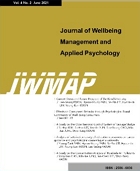- Log In/Sign Up
- E-ISSN2586-6036
- KCI
 E-ISSN : 2586-6036
E-ISSN : 2586-6036
Abstract
This study is about pressure-accepting behavior of consumers attached to brands. Previous studies of the situation focused on time pressure and scarcity pressure, focusing on scarcity. The results of the study are as follows. First, consumers attached to brands were found to be relatively blunt in time pressures. This indicates that brands of consumers are attached to do not buy on impulse because of time pressure. Second, consumers attached to brands were found to be relatively under social pressure. This indicates that consumers who are attached to the brand do not buy with social pressures such as quasi-family groups. Third, consumers attached to brands were found to be relatively sensitive to scarcity pressures. Thus, a quantity-limited marketing strategy is generally more effective for consumers with high marketing effectiveness but high brand attachment. Fourth, unlike the one presented, consumers attached to the brand were found to be relatively insensitive to place pressure.
- keywords
- Post-Brand Behavior, Time Pressure, Place Pressure, Scarcity Pressure, Social Pressure
- Downloaded
- Viewed
- 0KCI Citations
- 0WOS Citations













